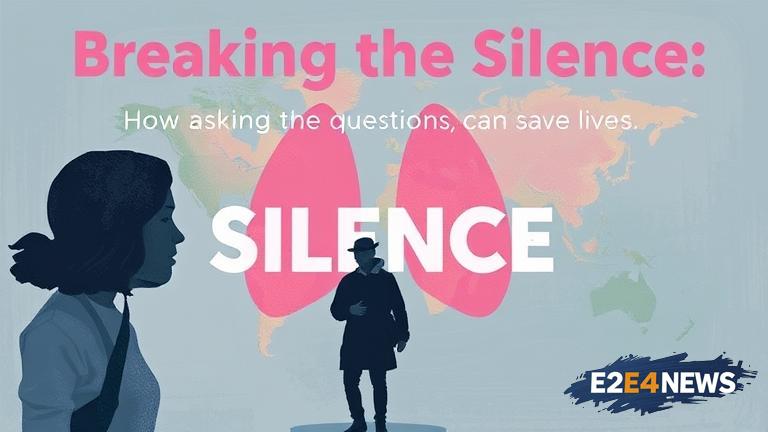As the world observes World Lung Cancer Awareness, it is essential to shed light on the significance of this disease and the measures that can be taken to prevent, diagnose, and treat it. Lung cancer is one of the most common types of cancer globally, accounting for over 1.8 million deaths annually. Despite its prevalence, there is a lack of awareness about the disease, its symptoms, and the importance of early detection. Dr. James Yang, a renowned expert in the field, stresses that asking questions can be a lifesaver. By being informed and proactive, individuals can reduce their risk of developing lung cancer and improve their chances of survival if diagnosed. The most common symptoms of lung cancer include persistent coughing, chest pain, and difficulty breathing. However, these symptoms can be similar to those of other diseases, making it crucial to consult a doctor if they persist. Smoking is the leading cause of lung cancer, responsible for about 80% of all lung cancer deaths. Quitting smoking can significantly reduce the risk of developing the disease. Other risk factors include exposure to secondhand smoke, radon, asbestos, and certain chemicals. Family history also plays a role, with individuals having a higher risk if they have a close relative who has been diagnosed with lung cancer. Early detection is critical in the fight against lung cancer, as it can improve treatment outcomes and increase survival rates. Low-dose computed tomography (LDCT) scans are recommended for individuals at high risk, as they can detect lung cancer at an early stage. Treatment options for lung cancer include surgery, chemotherapy, radiation therapy, and targeted therapy. The choice of treatment depends on the stage and type of cancer, as well as the individual’s overall health. Dr. Yang emphasizes that asking questions is vital throughout the diagnosis and treatment process. Patients should feel empowered to ask about their treatment options, potential side effects, and any concerns they may have. By being informed and engaged, individuals can take an active role in their care and make informed decisions about their health. Furthermore, asking questions can help to break the silence surrounding lung cancer, encouraging others to speak openly about their experiences and seek help if needed. World Lung Cancer Awareness is an opportunity to raise awareness about the disease and promote education, research, and advocacy. By working together, we can reduce the burden of lung cancer and improve outcomes for those affected. It is essential to support individuals who have been diagnosed with lung cancer, as well as their families and caregivers. This can involve providing emotional support, helping with daily tasks, and advocating for their needs. In addition, researchers and healthcare professionals must continue to work towards developing new and effective treatments for lung cancer. This includes exploring innovative therapies, such as immunotherapy, and improving existing treatments. Governments and organizations also have a critical role to play in reducing the incidence of lung cancer. This can involve implementing policies to reduce smoking rates, increasing access to screening and treatment, and providing education and support to those affected. Ultimately, asking questions can save lives, and it is essential to encourage individuals to take an active role in their health. By being informed, engaged, and proactive, we can work towards a future where lung cancer is no longer a leading cause of death worldwide.
